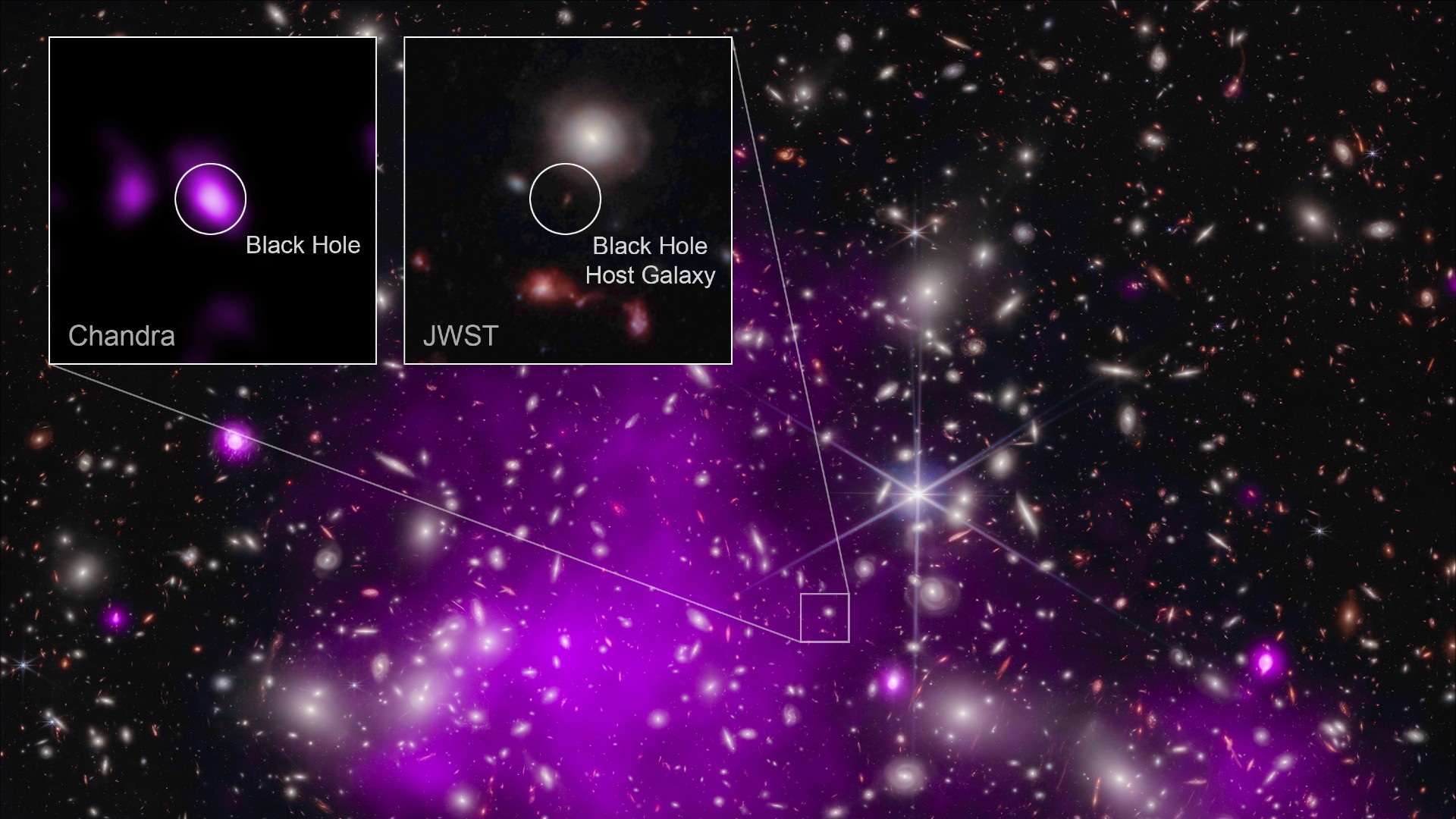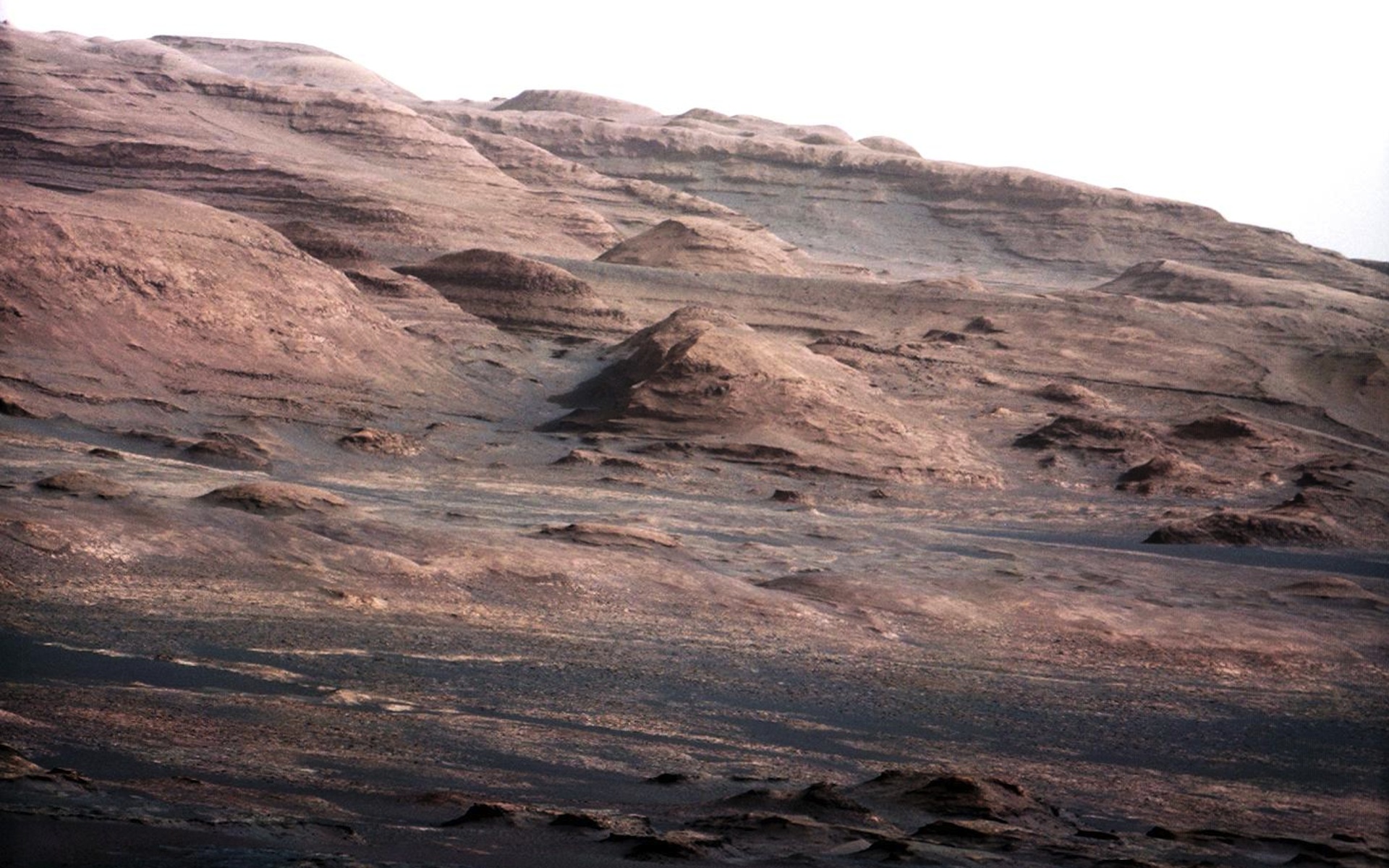Amazing Photos: Titan, Saturn's Largest Moon
Cassini Snaps Closest Images Ever of Saturn's Moon Titan
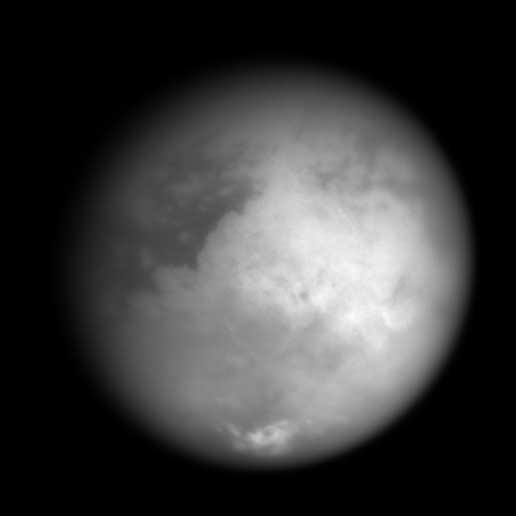
A new picture of Titan by the Cassini spacecraft reveals a bright region in the middle named Xanadu. Scientists don't know what it is.
New Images of Titan Baffle Astronomers
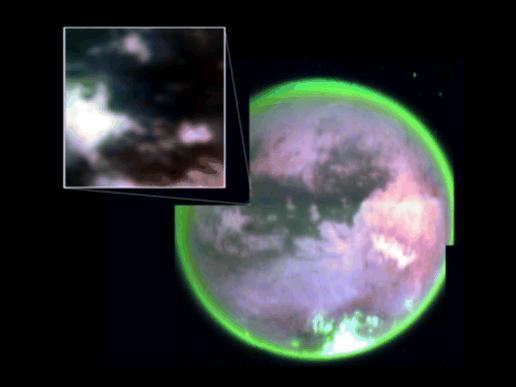
Surface features of Titan come through in this false-color infrared image. The inset picture shows the landing site of Cassini's piggybacked Huygens probe.
Titan: A Good Mystery
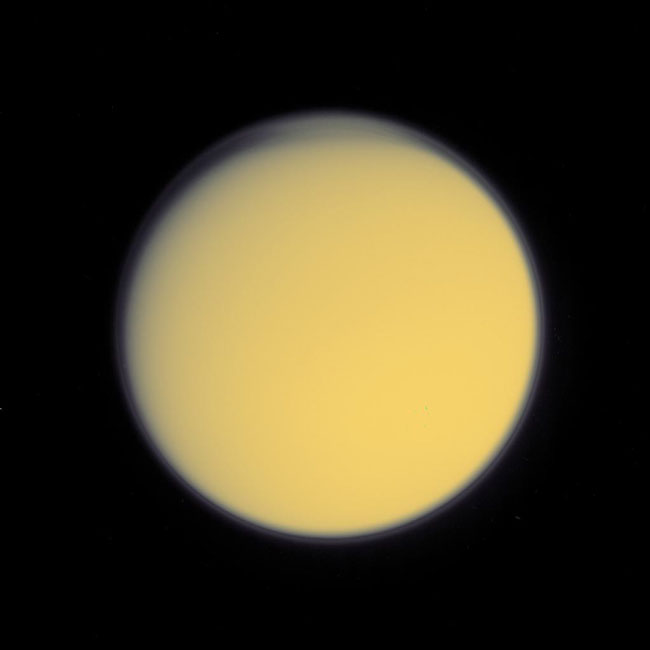
Titan as Orange Globe: Titan as we might see it with our eyes from the Cassini UV camera (colorized).
Huygens Loses Communication Line With Cassini Spacecraft

This first panorama of Titan released by ESA shows a full 360-degree view around the Huygens probe. The left-hand side shows a boundary between light and dark areas. The white streaks seen near this boundary could be ground 'fog', as they were not immediately visible from higher altitudes. Huygens drifted over a plateau (centre of image) and was heading towards its landing site in a dark area (right) during descent.
Huygens Probe Sheds New Light on Titan
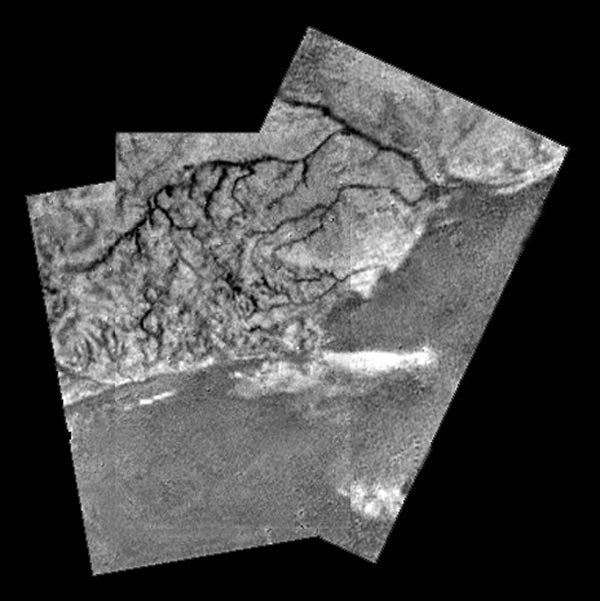
This mosaic of three frames taken by Huygens provides unprecedented detail of a high ridge area on Titan's surface, including the flow down into a major river channel from different sources.
Unmasking Titan: Volcano Spotted on Saturn's Smoggy Moon
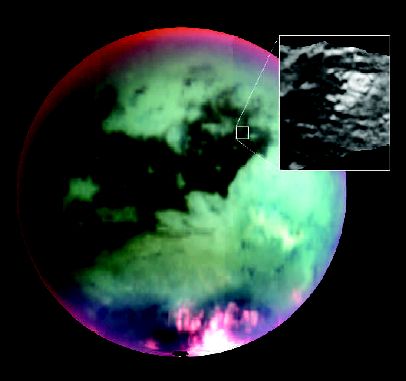
A false-color infrared mosaic of Titan show features not visible to the eye: atmosphere (red); surface (green and blue). The inset shows an a prominent circular feature thought to be a volcano with flows extending westward. Image
Cassini Probe Spies Lake-Like Feature on Titan
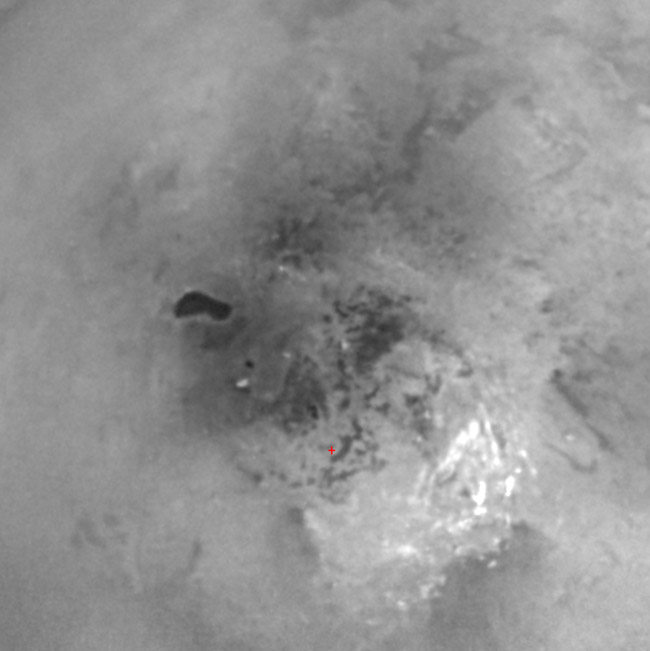
This view of Titan's south polar region reveals an intriguing dark feature that may be the site of a past or present lake of liquid hydrocarbons.
Get the Space.com Newsletter
Breaking space news, the latest updates on rocket launches, skywatching events and more!
Scientists Reconsider Habitability of Saturn's Moon
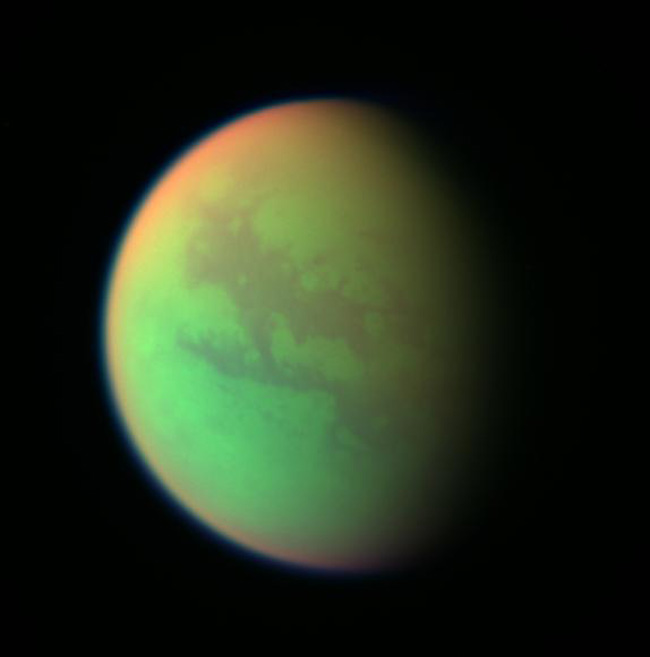
False color image of Saturn's moon Titan.
Shoreline Spotted on Saturn's Moon Titan
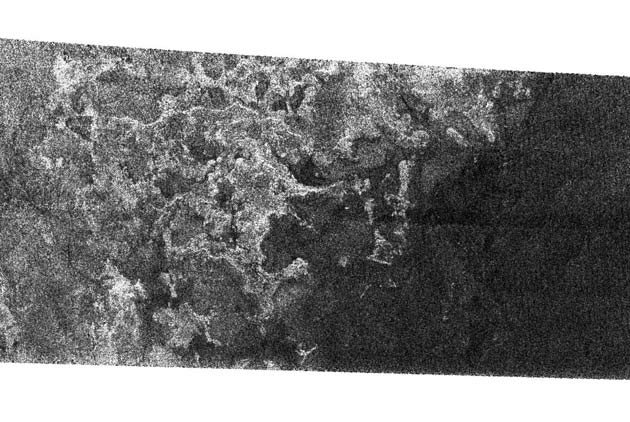
Radar image of Titan showing that the boundary of the bright (rough) region and the dark (smooth) region appears to be a shoreline. The image is 175 kilometers high and 330 kilometers wide (109 miles by 205 miles), and is located at 66 degrees south latitude, 356 degrees west longitude in the southern hemisphere of Titan. Image
New View of Titan: Strong Winds, Soft Ground and Lightning
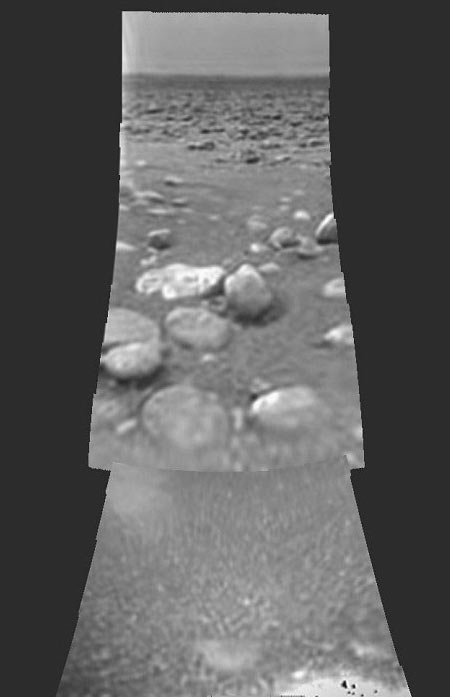
Images from the DISR Side-Looking Imager and from the Medium Resolution Imager, acquired after landing. The horizon’s position implies a pitch of the DISR, nose-upward, by 1-2° with no measurable roll. ‘Stones’ in the foreground are 10-15 cm in size, presumably made of water ice, and these lie on a darker, finer-grained substrate. The scene evokes the possibility of a dry lakebed. Credits: ESA/NASA/University of Arizona
Join our Space Forums to keep talking space on the latest missions, night sky and more! And if you have a news tip, correction or comment, let us know at: community@space.com.

Space.com is the premier source of space exploration, innovation and astronomy news, chronicling (and celebrating) humanity's ongoing expansion across the final frontier. Originally founded in 1999, Space.com is, and always has been, the passion of writers and editors who are space fans and also trained journalists. Our current news team consists of Editor-in-Chief Tariq Malik; Editor Hanneke Weitering, Senior Space Writer Mike Wall; Senior Writer Meghan Bartels; Senior Writer Chelsea Gohd, Senior Writer Tereza Pultarova and Staff Writer Alexander Cox, focusing on e-commerce. Senior Producer Steve Spaleta oversees our space videos, with Diana Whitcroft as our Social Media Editor.
